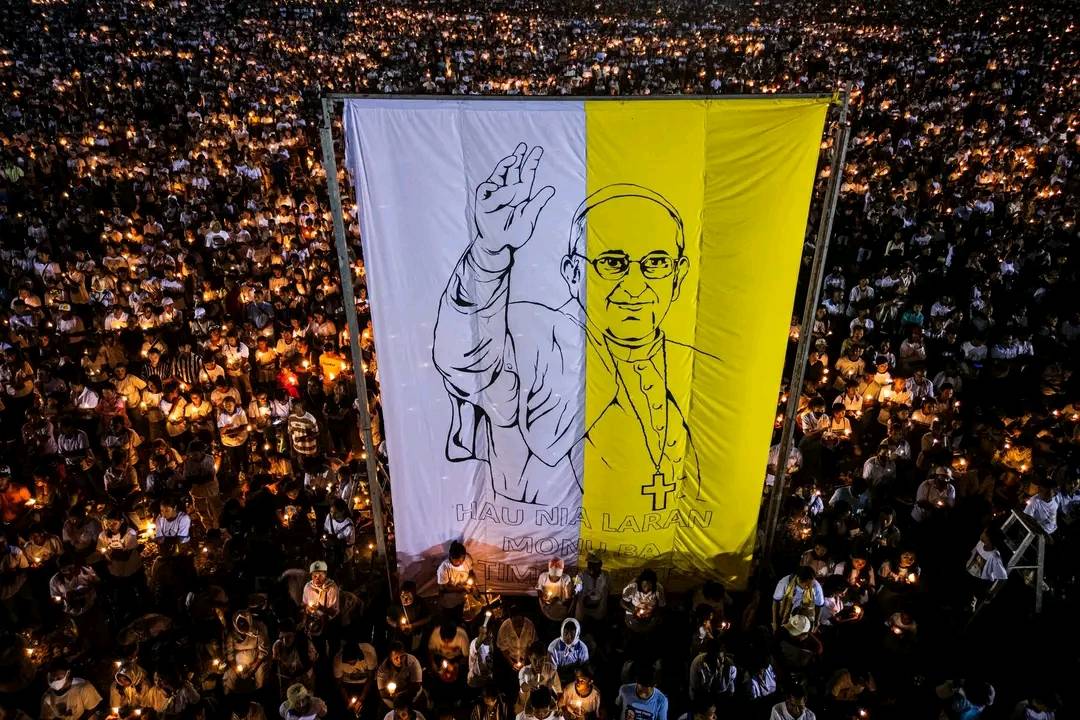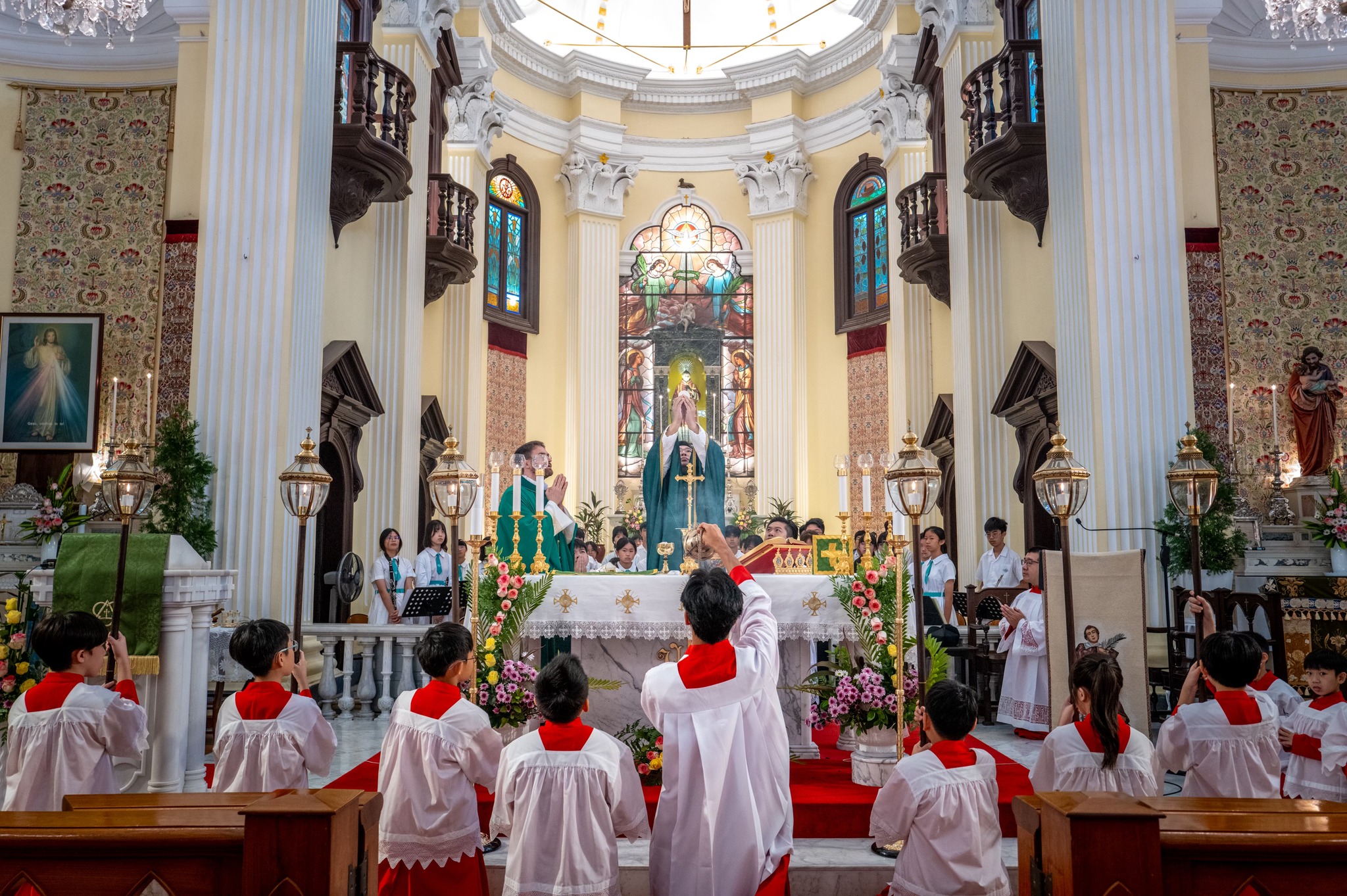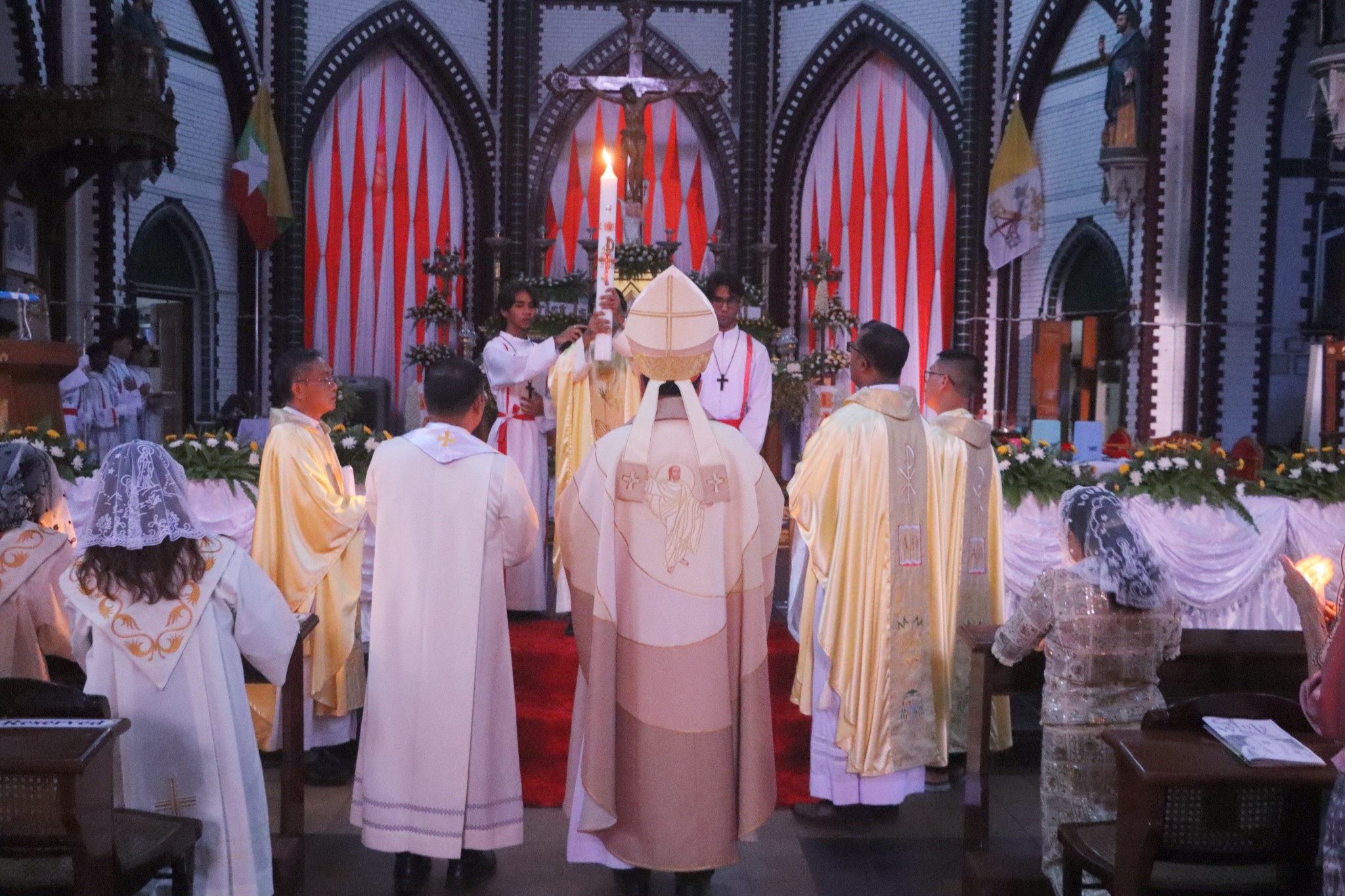Marco Carvalho
Pope Francis, who died on Easter Monday, brought synodality back to the heart of the church. During his pontificate, Jorge Mario Bergoglio consistently upheld the Church’s priority of addressing the needs of the poor and invited Catholics worldwide to fully embrace a new theological paradigm, that of pastoral theology. Francis’s time at the helm of the Church was marked by two fundamental characteristics: a deep connection to the Second Vatican Council and the desire to bring the Church closer to the people. The Argentinian pope’s pontificate cannot be understood, Sigrid Müller claims, without seeing it as a continuation and development of Vatican II. The German theologian, teacher of Moral Theology at the Catholic Theological Faculty of the University of Vienna, spoke exclusively with “O Clarim” about Pope Francis’ theological legacy.
What would you say are the most defining aspects of pope Francis’ theological legacy?
Sigrid Müller: Pope Francis was a Pope who not only wrote about but also taught through his gestures and visits to the marginalized people that God is merciful and has unconditional love for every human being. But it is also important that this love is not an isolated relationship between God and the individual human being, but rather part of a relationship between all people. According to Pope Francis, there is always a communal dimension to merciful attitudes and actions. “Integrate” was his continuous message: no to division, yes to integration. The aim of forgiveness and love is to restore and communication and remain in communion with each other. Therefore, all forms of separation, that is between nations, religions, denominations, social groups, ordained and lay Christians, are contrary to being the family that God wishes us human beings to be. Sisters and brothers, living together in peace all over the world.
Humility, reform and evangelization are three key aspects of Pope Francis’ papacy. How did these values encounter their way to his apostolic exhortations?
S.M: The emphasis on humility, reform and evangelization was there right from the beginning. Francis’ first apostolic exhortation, Evangelii Gaudium, mentioned already the idea of a “sound ‘decentralization’”, which means that being pope is not about a concentration of power, but rather as being a symbol of unity among people who live their faith with passion and conviction. He also raised the idea of time being greater than space, which meant that processes need to be initiated that allow for development of the church, but that are not directed too strictly because the church is like a polyeder: it can look somewhat different in different places, so that different places walk at a different pace. This means also having patience and confidence that we will eventually come to shared convictions in the Holy Spirit, even if these processes take some time. Evangelization, spreading the joy of the Gospel, is the main task and aim of the Church. This is also reflected in “Dilexit Nos”, the last encyclical of Pope Francis, where he speaks about how we can develop our hearts to feel and reflect the love Jesus has for each and every one of us. Forgiveness, conversion and growing love are central elements of evangelization within and beyond the church.
What would you say is Pope Francis’ most relevant papal document? Which apostolic exhortation better expresses the Pope’s commitment to the poor and the marginalized?
S.M: A colleague of mine from Paris, Dominique Coatanea, rightly said that Laudato Si’, published in 2015 and Fratelli Tutti, signed in 2020, should be seen together: protection of the world as our common home cannot be done without the protection and dignity of the human person. Every human person is seen as equal, we are all brothers and sisters. Environmental ecology and human ecology need to join hands and walk together because there is no protection of the world without the human being and the dignity of the human being is not preserved if we take away other living beings which belong to God’s creation. We know from intersectional studies that those who are economically marginalized in the world are very often also those who suffer most from environmental crises. And Pope Francis repeated that we should not shy away but rather encounter the marginalized and create solidarity among religions to create a universal friendship.
How important is the focus on a greater lay protagonism and in synodality to understand the late Pope’s theological stance?
S.M: Pope Francis ‘emphasis on more integration of lay people and especially women in important functions within the Church was not a renouncing on hierarchy, but its re-interpretation as a “hierarchy of service”. As a Jesuit, for him it was clear that a hierarchical structure is needed to symbolize and direct the entire community. But hierarchy for him did not mean to put a human person charged with a duty as the pope’s, in the center of attention and admiration because of the position. He was not thinking of a pyramid, where who is higher is more important. Rather, he understood the church as an inverted pyramid: the former top people are there to serve the others, especially by rooting them in faith, and by walking with them in their lives, assuring them of God’s love and compassion. Therefore, synodality for Pope Francis was not an application of democratic voting tools within the realm of the church. Synodality is rather an attitude and a practice and symbol of a community which wants to encounter each other, share in faith and be in service of the world, a communion that is able to transmit faith and encouragement, show and live a unity in diversity. Pope Francis’s move to integrate synodal structures in the church is based on Vatican II’s teaching that the Holy Spirit will guide the church, and this means the sense of the faithful that includes all Christians, whether they are ordained or lay.
Will the theology of Pope Francis stand the test of time?
S.M: Pope Francis’s theology is not revolutionary in a theological sense, but rather takes seriously what has been developed before, with the exception of a few aspects. The most evident example is the “theology of the people”, which is a Latin American concept of the ordained walking with their faithful as shepherds with their sheep. Most features of his theology can be seen as expressions or developments of theologies that are rooted in the theology of Vatican II, in the perspective that through baptismal grace, all the baptized are endowed to be priests, kings and prophets, and, therefore, the sense of the faithful together will always be guided by the Holy Spirit. Another aspect is freedom of religion and of conscience that were declared by the Second Vatican Council and which Pope Francis applied, for instance when he stated in the post-synodal apostolic exhortation Amoris Laetitia, published in 2016, that developed a theology of the family that the church should educate but not replace personal conscience. Regarding dialogue with other religions, John Paul II had already stated that there are seeds of the Word to be found in other religions. Pope Francis entered into explicit dialogue with representatives of Islam and other religions, regarding the protection of the family, and of humanity in the field of new technological developments, and promoted joined declarations, as the one of Abu Dhabi and a Charter on AI. In this sense, I am convinced that Pope Francis’ encouragement to cross borders, to unite all humankind in encounter and mutual help, of showing everybody that there are no exceptions to human dignity, are timeless and needed also in the future.


 Follow
Follow


